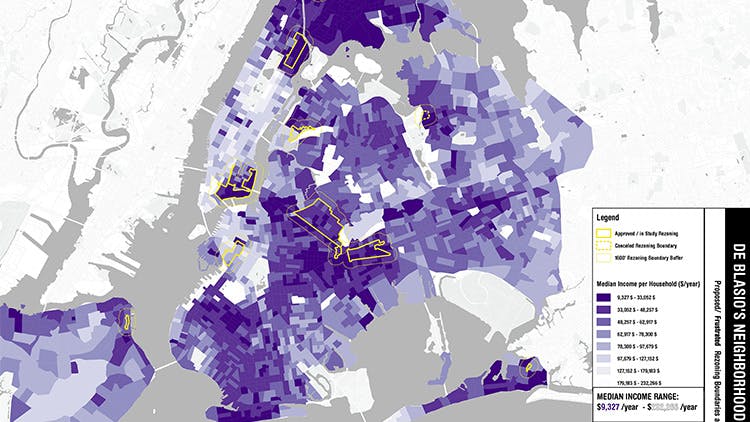The Urban Nonprofit Complex: Thwarting The Rebel New York City

How does urban dialogue take place in a neoliberal metropolis where the preeminent stakeholders have removed conflict for the sake of urban productivity? Exploring New York City's ongoing rezoning participation process as an example of a conflict removal process, this research analyzes the roles of the city planning agency, nonprofit technical intermediaries, community-based organizations, and civil society groups that work within the urban context. This research aims to evaluate the capacity of these entities in representing the voice of the inhabitants within these current predatory urban transformations and explore the availability of independent community action for urban democracy. The Department of City Planning has created PLACES, a tool to promote community participation that controls the opposition against these voracious urban transformations and supposedly collects insight from the same neighbors that will soon be displaced. Through the ideology removal mechanism, the neighbors' engagement practices are transformed into simplistic exercises to exclusively "educate" communities in the field of zoning through technocratic lenses. Consequently, with the specific goal of bringing neighbors to the participation table while also controlling their actions and the outcomes of the process, a philanthrocapitalist complex of foundations, financial institutions, and intermediaries has been recently configurated. This is Neighborhoods First Fund (NFF), a goal-oriented collaborative fund and its partnership with diverse nonprofit organizations' experts in the field of community development. This philanthropic and technocratic initiative attracts community-based organizations and neighborhood coalitions in need of funding and support. Nevertheless, the financial resources which NFF is providing also require the agreement to collaborate with an apparently unbiased technical assistance team. The mission of this research is to distinguish between independent community action and this techno-philanthrocapitalist complex to interpret from which spaces the imminent future rebel New York City can emerge.